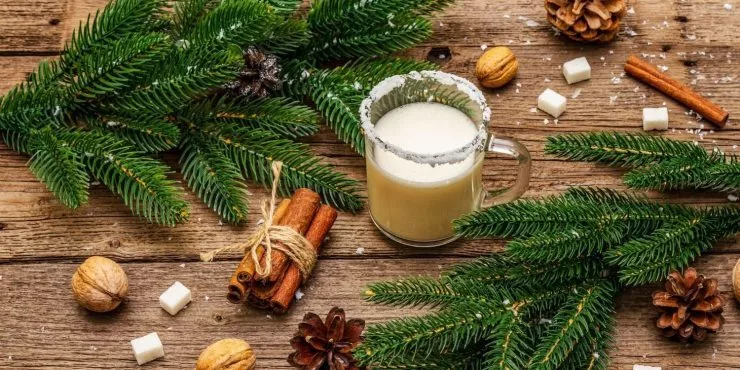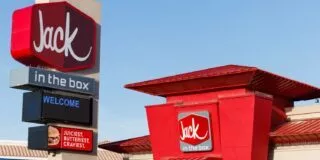Eggnog is a popular winter drink, enjoyed especially at Christmas time.
It is one of the most iconic things to have at Christmas parties as a festive beverage and it even has its own day!
An average of 135 million lbs (61 million kg) is consumed every year in America alone.
But do you know where the spicy creamy drink originated? And why do we love it so much?
Here are 5 enjoyable facts about eggnog!
Eggnog was created in medieval Europe.
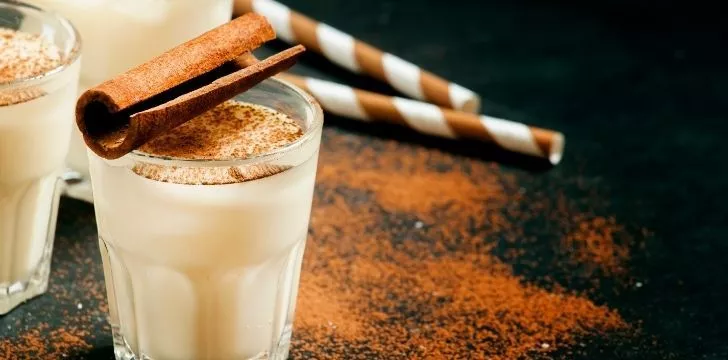
The drink is said to have been a product of a European beverage called “posset”.
Posset was made from hot milk that was then mixed or curdled with wine or ale and spices.
Amongst the aristocracy of Britain, eggnog was born and it became a development of posset.
The new drink contained egg, milk, and sherry as it was only the wealthy who could afford these ingredients.
The drink became a popular aperitif for making toasts at parties, and hence eggnog was invented.
The name eggnog comes from “nog” or “noggin”.

The etymology of the name eggnog has a selection of roots that it could have derived from.
It is said that in medieval times in East Anglia, England, there was an alcoholic type of beer brewed in that region called “nog.”
The word “nog” was first used in 1693 to describe an alcoholic drink and it is suggested that eggnog came from this due to its alcoholic content.
It is also thought that eggnog comes from the word “noggin”, which was a small wooden cup from which you would drink eggnog from.
In Britain, the drink was known as “egg flip” because it was poured between jugs to mix it.
It is thought that the word we use today; eggnog was invented in America in around 1765.
Traditional eggnog was made with alcohol to kill bacteria.

Eggnog was originally made with alcohol, not for taste but for safety.
In medieval times it was quite risky to drink milk straight, similarly to today where it can be risky to drink milk that hasn’t been pasteurized.
So the solution was to add alcohol to the milk so it would kill any harmful bacteria found in the dairy product.
Old recipes would suggest that you cure the raw eggs in alcohol such as rum for a few days to ensure any bacteria from the eggs were also eliminated.
Most people would leave their eggnog to sit for a few days to a week to make sure all bacteria was gone before consumption.
Eggnog that is store-bought today rarely contains alcohol due to being regulated by the FDA, and there is no need for getting rid of bacteria.
It also rare for store-bought eggnog to contain raw eggs.
It is said that eggnog was the cause of a riot in the US.
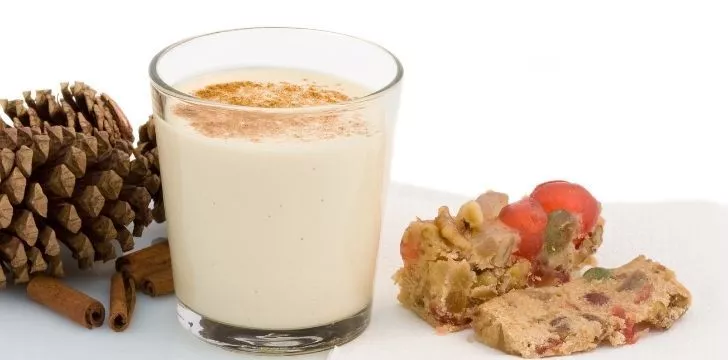
In the winter of 1826, a riot broke out at the United States Military Academy in West Point, New York.
It is said that a young cadet smuggled whiskey into the barracks and then spiked the communal eggnog.
After a few glasses of eggnog, the cadets started to become a bit rowdy.
Fighting broke out, a lieutenant was knocked out, guns were being fired and windows were smashed.
20 cadets were sent to court in relation to their actions that night.
It is known as the Eggnog Riot as it is assumed they had all had a bit too much to drink!
George Washington had his own recipe for eggnog.
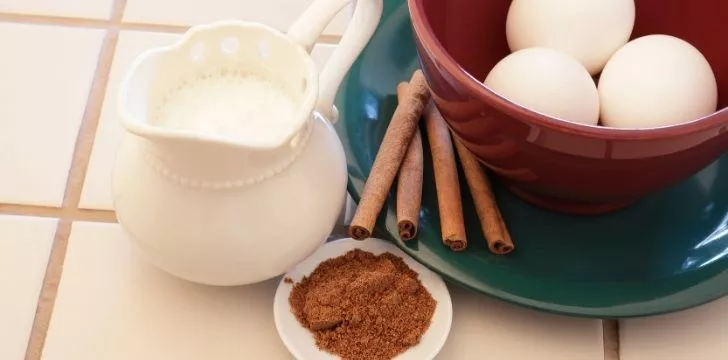
George Washington has been known to have been a lover of eggnog and would regularly serve it to guests.
Washington’s variation of eggnog contained multiple alcohols to enhance the taste.
He had his own preferred recipe and method of making eggnog which he would give to his cooks.
Washington’s personal recipe was; “One quart cream, one quart milk, one dozen tablespoons sugar, one pint brandy, 1/2 pint rye whiskey, 1/2 pint Jamaica rum, and 1/4 pint sherry.”
His method started with “mixing the liquor first, then separate yolks and whites of eggs, add sugar to beaten yolks, mix well. Add milk and cream, slowly beating. Beat whites of eggs until stiff and fold slowly into mixture. Let set in a cool place for several days.”
Eggnog was created as a way to enjoy a hot milk beverage without worrying about harmful bacteria and is now a loved Christmas drink.
The drink has been developed through the years and is now even available in non-dairy forms for vegans and those with intolerances/allergies.
So why not find a recipe and make your own to enjoy on national eggnog day on December 24th.
